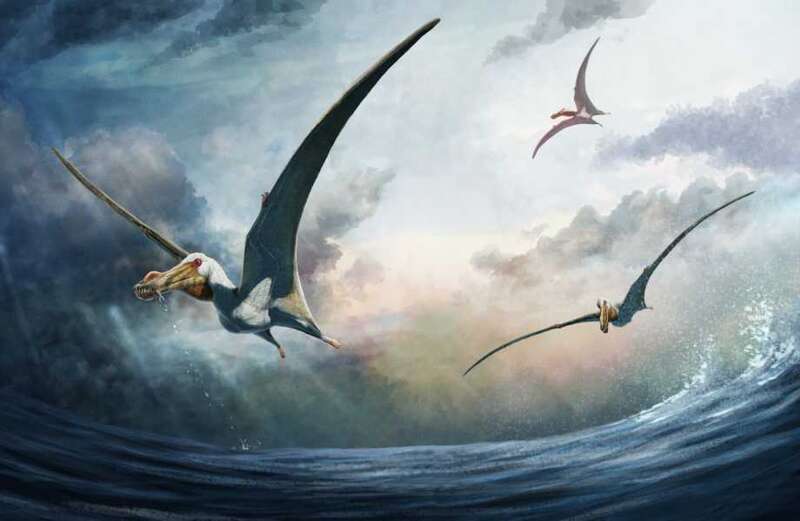A NEW species of Pterosaur - a giant, flying, carnivorous reptile - has been discovered in the Australian outback.
Kevin Peterson, who has a deep interest in paleontology, found the bones in 2021 while hunting for gold.

The fossilised remains reveal a "fearsome" reptilian beast with an enormous 15ft wingspan, roughly the height of a giraffe.
It has been classified as Haliskia peterseni, a new genus and species of the anhanguerian pterosaur.
“With a wingspan of approximately 15ft, Haliskia would have been a fearsome predator around 100million years ago when much of central western Queensland was underwater,” Adele Pentland from the Curtin’s School of Earth and Planetary Sciences who led the research team said in a statement.
 Man fined £165 after outraging the internet by dying puppy to look like Pikachu
Man fined £165 after outraging the internet by dying puppy to look like Pikachu
Anhanguerians are known to inhabit regions that we now call Brazil, England, Morocco, China, Spain, and the United States.
The discovery of a previously unknown species of pterosaur that thrived 100million years ago has "thrilled" Peterson, who is a curator at the Kronosaurus Korner museum in Richmond, Australia.
“I was checking another fossil and walking back to the car when I noticed bones sticking out of the ground,” Peterson said in a statement.
“This discovery is an exciting boost for science, education, and regional tourism.
"I’m thrilled that my discovery is a new species, as my passion lies in helping shape our modern knowledge of prehistoric species."


































